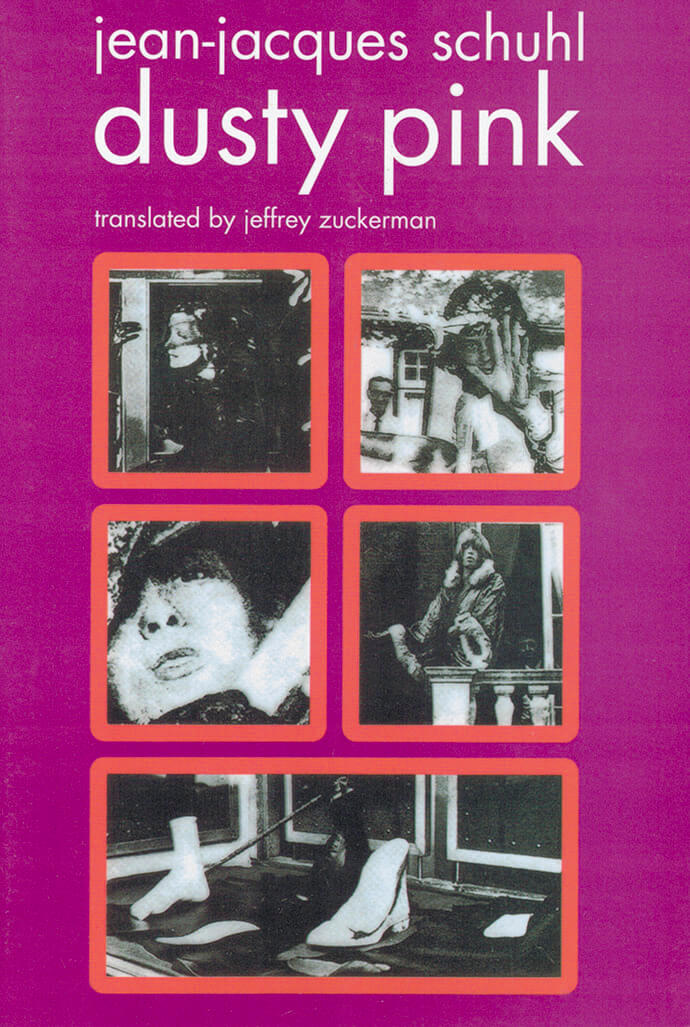
Dusty Pink
A cult classic in France, the first translation of a novel that captures a subjective stroll through an underground, glamorous Paris.
'finally there are the rolling stones who call for all these at the same time among them and around them: the policeman, the cross-dresser, the dancer, Frankenstein, the dandy, the robot'
—from Dusty Pink
Written with the hope of achieving a "dreary distant banality," Jean-Jacques Schuhl's first novel is a subjective stroll through an underground, glamorous Paris, a city that slips into the background but never disappears, hovering on the verge of its own suppression. An elegiac and luminous cut-up, Dusty Pink brings together race wire results, editions of France-Soir, the lyrics to well-known British songs, scripts from famous old films, pharmaceutical leaflets, fashion ads, and strips and scraps of culture in which the avant-garde and academicism blur in an overview of the cultural scene. This world of atmospheres, portraits, and dazzling associations of ideas creates a plane of shimmering surfaces.
Published in French in 1972, Jean-Jacques Schuhl's Dusty Pink became a cult classic. This is its first translation.
Cult author Jean-Jacques Shuhl won the Prix Goncourt in 2000 for his novel Ingrid Caven, which sold over 235,000 copies in France. It was his first book since Dusty Pink was published in 1972.
Language: English







